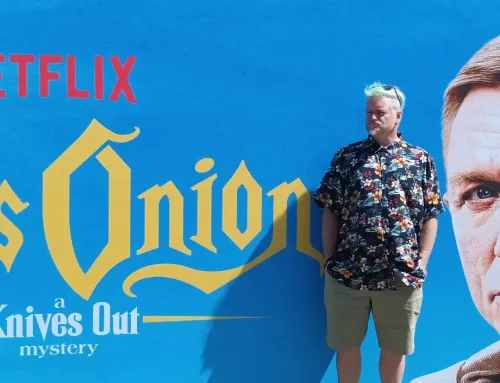i mentioned that the other night about thirty of us of various ages, genders and races hung out at The Warehouse in Wetton to discuss Economics and Theology.
Wayne Eaves chaired a bit of a conversation between Ashley Visagie and Cobus van Wyngaard and then the floor was opened to questions.
Here are some things that i learned or found interesting beyond the History isn’t over point i spoke about in my previous post:
# i think it was Cobus who mentioned the Lord’s Prayer and the line about ‘Give us this day our daily bread’ and how different that line might be for someone who has never been without daily bread. Or faced the risk of being without daily bread. Compared to someone who prays that regularly as a necessary prayer of existence and survival.
# My wife, tbV, paraphrased this point well:
‘The rhythms we have been taught to live by – individualism, commodification, accumulation, valued by what we produce, the sacrilege of rest etc – are liturgical; they form us. This broken system reproduces itself within our embodied rhythms. What we need is a counter-liturgy, an alternative formation that holds to an imagination of the world ‘that things can be different’.’
The word liturgy particularly spoke to me, especially after having been part of an Anglican church for a year and a half and really embracing some of the regular repetitive practices as healthy rhythms of life that help center and focus and remind me of what’s important. So liturgy can be a good thing. But what came out of the conversation was how little we sometimes think about some of the stuff we just do because it’s the done thing that ‘everyone does’ – at one point someone said ‘everyone has medical aid, right’ which made me feel a little excluded from the everyone group as that is something i have never had as a combination of choice and priority of being able to afford it.
The idea of working on a liturgy or liturgies that will work counter to the systems of the world excites me, especially as it will work better in community.
# It was interesting hearing different things expressed as needs or absolute needs by people – “my kids being able to go on international hockey trips” certainly tested my vow of silence [see later] but comments like “everyone has medical aid” or “everyone needs insurance” also provided spaces for people to contemplate the lives of people who don’t naturally have those things either by choice or ability.
Linked to that point was a comment that came out of a story Ashley shared about a car accident they were involved in and the shame thrust at them for not at the time having insurance and how he had to get an extra job to afford the insurance they now have. Two points in there really – the pressure from others [family is usually strong but friends and work colleagues, church even] to conform to what some consider the norms… and also the implication of the consequences [time, energy, effort, money] of conforming to those norms…
# The other point i really loved on that which Ashley raised was challenging people to think differently, and therefore live differently. What if someone whose kid would be in a private school decided to put them in a public school which meant all that wealthy person’s assets and networking connections and prospective power would now be available to that school. So the decision would not be purely one on choosing this school over that school but rather how deep a difference can i be a part of making in that school?
What if that person persuaded a group of five of their friends to do the same? i imagine this very quickly gets quite tricky from a ‘white Saviour’ mentality point of view so that would have to be carefully worked against. But the idea of investing yourself into your kid’s school so that not just your kid benefits. Huge potential if that idea could be expounded exponentially.
# Lastly, and this was just a side thing for me, but i think it might be a worthwhile experiment for others to take on as well, i tried a little experiment out in terms of seeing if i could be in a meeting involving subject matter i care about without commenting.
Part of this is as a race thing of trying to be more aware how white voices tend to dominate spaces. By me as a white person choosing to not comment i was also more aware of when white people spoke and when people of colour spoke. Also my voice not contributing meant that there was space for one other voice to comment at least. But probably more. #LetsBeHonest
Part of this was also a gender thing of trying to be more aware how male voices tend to dominate spaces. By me as a male choosing to not comment i also became more aware of when men were speaking and when women were speaking. And again my voice not contributing gave potential space for an extra female voice to be heard.
The hardest part is dealing with the feeling that what i want to say is so important that people need to hear it or they are missing out. The pride and narcissism in me certainly pushes to the fore, prodding with little inner statements like, ‘i know you decided not to speak and you’ve done well, but just this one important point’.
= = = = = = = = =
There were some really good thoughts and i have only captured a few of them here. But what was more exciting for me about the other night was the who and the what. A pretty diverse room consisting of a collection of some really quality people who don’t think the same way about stuff at all. Getting together to dive deeply into a conversation about economics and theology.
One of the other things i might have said if i had taken a moment to speak, which was touched on, relates to the church and money. i don’t believe that for the most part [you know, generally speaking] that the church has a theology of money that reaches beyond tithing and i think that is a huge pity. Because Jesus and pretty much the rest of the bible speaks about money and economics and relationships within those spaces quite indepthly.
i do think that one of the reasons the church doesn’t look more deeply into these things is that it might end up having to do things somewhat differently if it did. How does your church do on talking about money?
Also you don’t need the Warehouse or Wayne Eaves and friends to call an official gathering together to have the next conversation on money. Have one at your local coffee shop. Invite some mates over for a meal and conversation. Our country needs these kinds of conversations that will lead to action to happen a lot more frequently. Don’t sit and wait for the next one. Host it.







[…] were at a meeting discussing economics and theology the other day and a few statements were made that i found […]